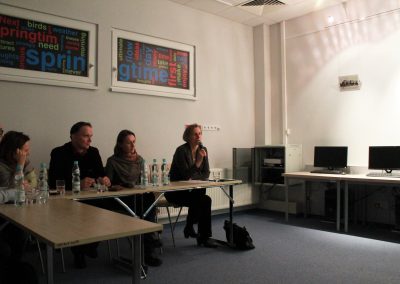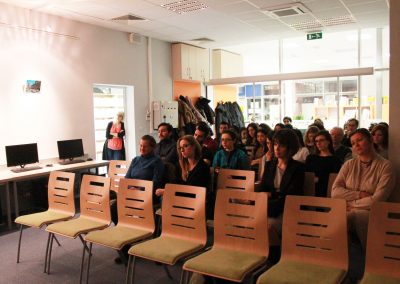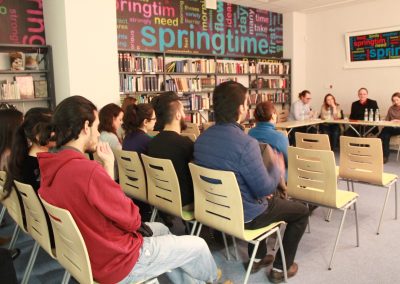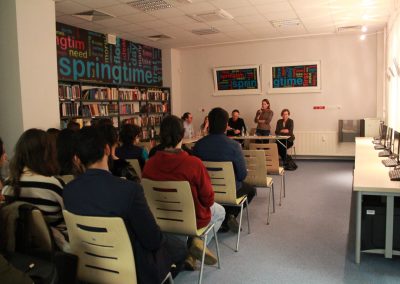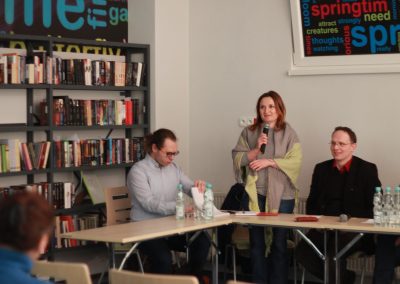On Wednesday we met in the Municipal Library Fil. 4 to participate in the debate entitled Gender ideology(ies): Man and woman – different by nature, inequal by society? We tried to find the answer to this question with our four guests: sociologists Borys Cymbrowski and Anna Czerner, philologist Katarzyna Molek-Kozakowska and biologist Elżbieta Pogoda.
We were aware that for most people the term gender is unfamiliar or even unfriendly, especially when someone is not a philologist or a social researcher, so we started with the basic questions: what gender is, how it exists in our respective fields of studies, and if there exists gender ideology. We can say that gender in general is about social consequences of being men, women or the others, because in the opinion of Elżbieta Pogoda even from a biological point of view there are more than only two sexes. And there is no evidence that one sex has an advantage over another.
In Polish media we encounter some false beliefs about the meaning of the word “gender”. But as Borys Cymbrowski mentioned it is a problem of confusion of nature with culture, because in the Polish language we have only one word (płeć) for gender and for sex. So some commentators confuse biological meaning with the cultural one. They accuse gender scholars of promoting a dangerous ideology which tries to convince people to choose their sex. As Anna Czerner said, the truth is that in the social sciences gender was a neutral category to analyse the relations between people in society, but unfortunately some institutions and politicians took one of the least popular topics in gender studies and used it as a basis to create and apply gender ideology as a political tool.
After that we focused mostly on language aspects within gender issues. Katarzyna Molek-Kozakowska indicated that for her it was easier to introduce herself in English than in Polish, because in Polish most names of academic professions have only a masculine gender, or even if it has a female gender, masculine forms sound more serious and more prestigious. But language is not a constant phenomenon – it is changing all the time. Twenty years ago we considered some female forms of words as strange, but today we take them for granted. We concluded that it is important to include more women-related forms to language, and it is one of the main catalysts of social changes in the public sphere.
We are really glad we could discuss it with you and with the citizens of Opole. We would like to thank you all for your presence and participation, and we hope to see you soon during another discussion. The aim of the whole debate was to clarify a little the problem of gender, but two hours is a short time when you are discussing such an important and complicated topic – so we treat this meeting only as a start. The debate is still open.
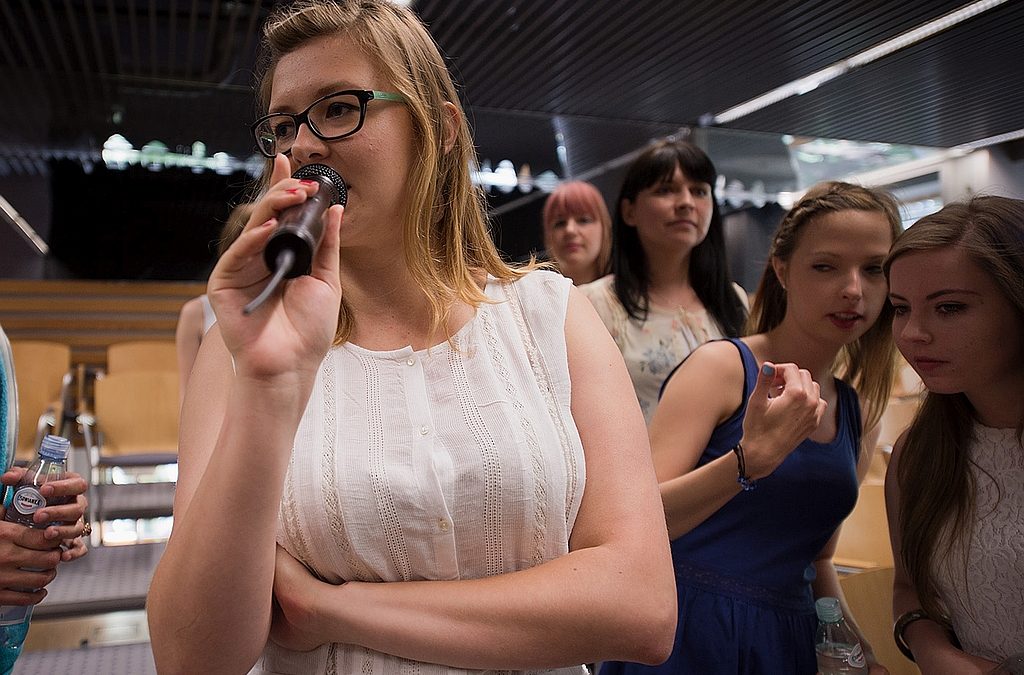
Congratulations to Magdalena Kurowska/Gratulacje dla Magdaleny Kurowskiej/Вітання Магдалені Куровській
Dear students, We are pleased to announce, that our student – Magdalena Kurowska – has recently become one of the European Union Careers Ambassadors. Magdalena has graduated from Journalism and Social Communication at the Opole University and is currently our MA...
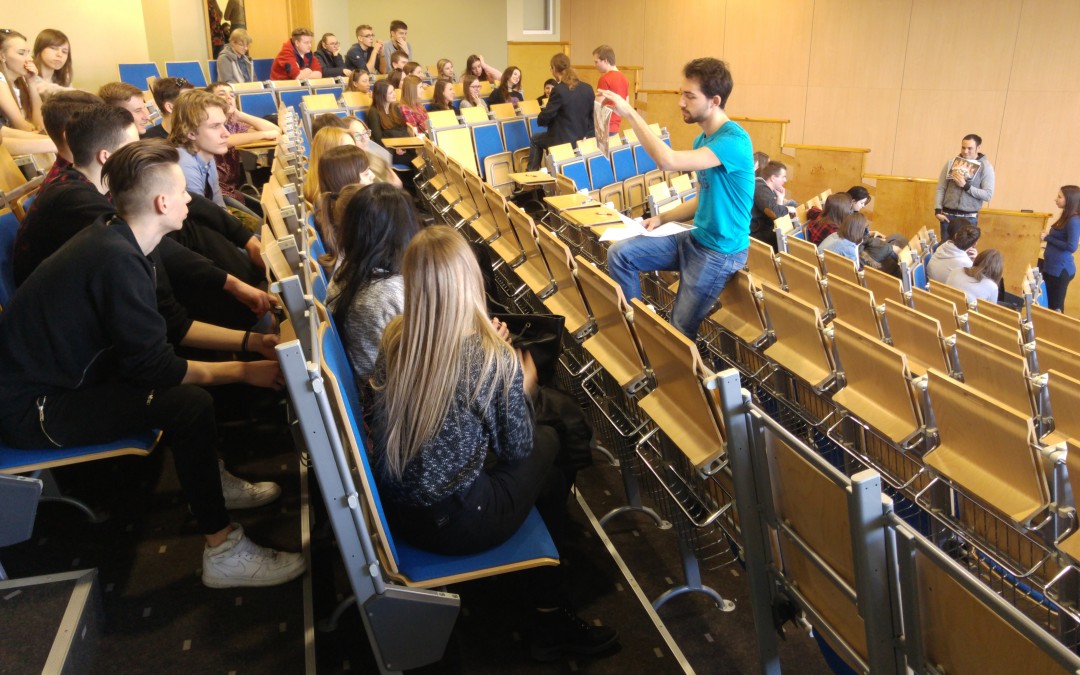
Media for the Youth / ЗМІ для молоді / Media dla młodych
Drogie studentki, drodzy studenci, 20 października o 11 w auli Collegium Civitas odbędzie się debata „Media dla młodych” organizowana przez studentów z Koła Socjologów Uniwersytetu Opolskiego w ramach „Forum mediów polonijnych dla Opola”. Serdecznie zapraszamy na...
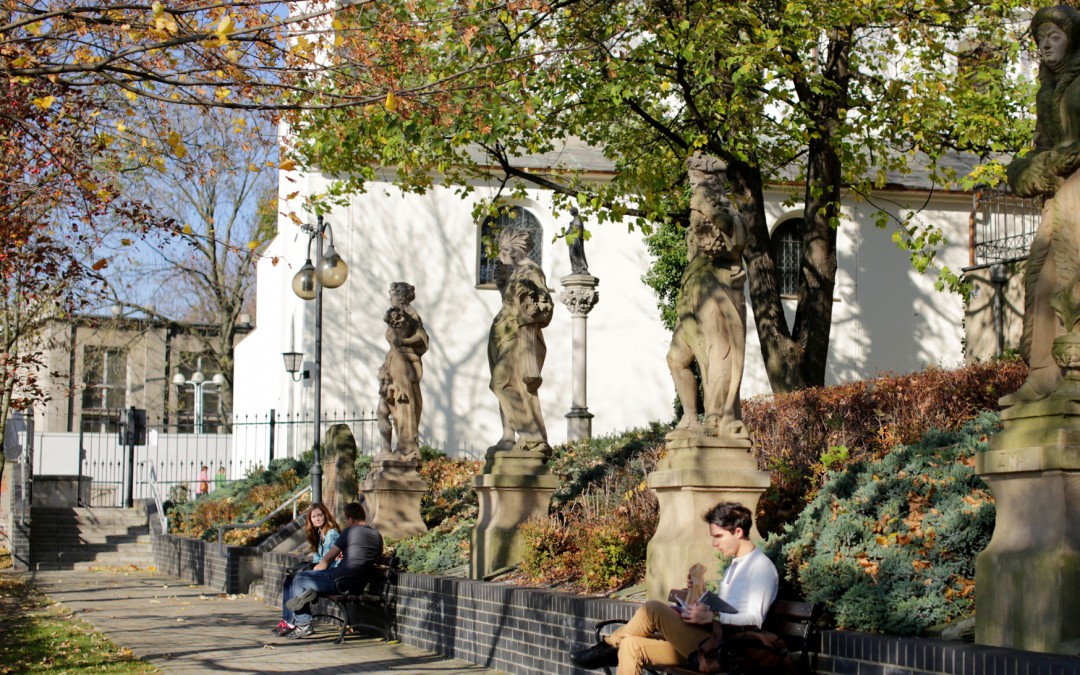
Inauguration of the Academic Year / Урочисте відкриття Академічного року / Inauguracja roku akademickiego
Dear students, On Tuesday, October 4th, at 11 am you are invited to witness the Inauguration of the Academic Year at the Auditorium of the Faculty of Theology in Drzymały Street. It will be the 67th time our Institution opens a new academic year and important persons...
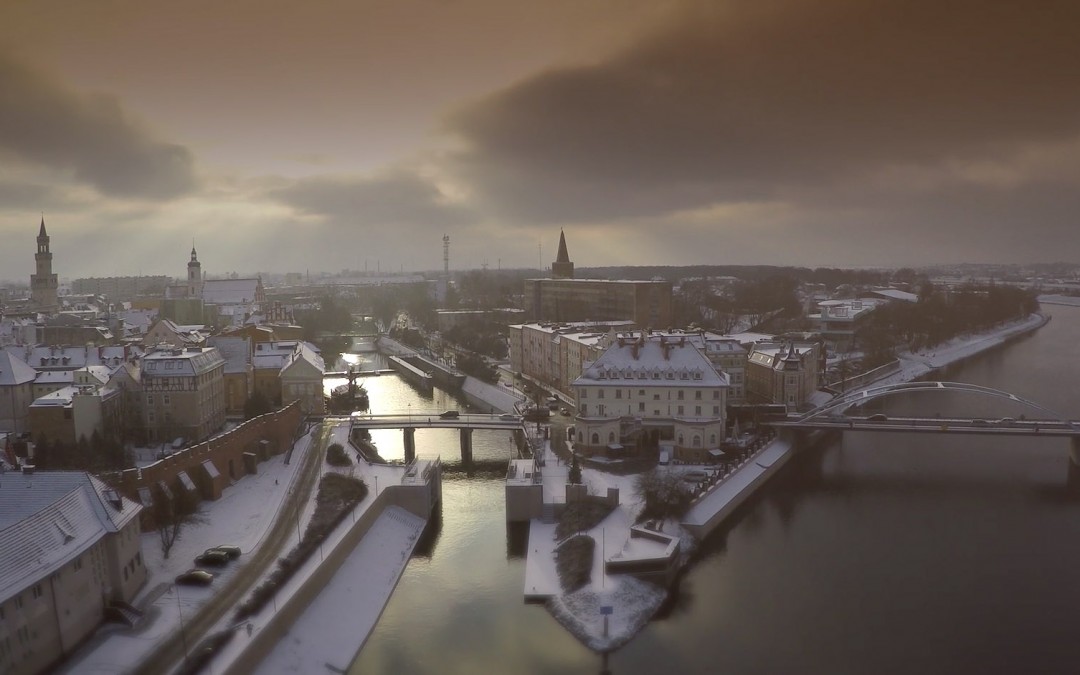
The Black Protest / Czarny protest / Чорний протест
Dear students, I believe that many of you (at least the Polish ones) are aware of the black protest which is going to take place on Monday. For those of you who didn’t manage to get informed, however, and are surprised by the numerous posters and leaflets that...
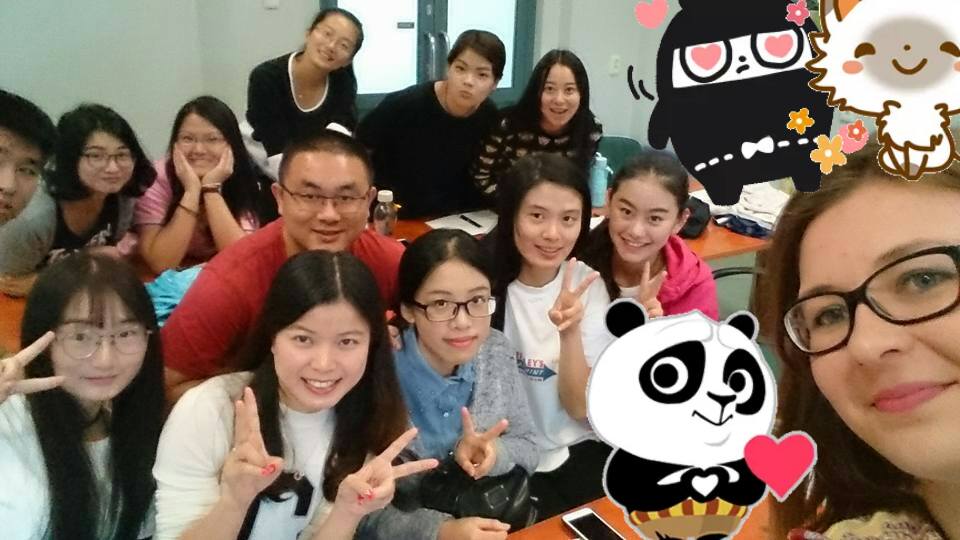
We all are students. Chinese guests at the University of Opole
How does Students' Government at the University of Opole work and is it similar to Students' Union from Fujian Normal University (FNU)? Are there any differences between Chinese and Polish students' organizations? Last week together with students from The Communist...
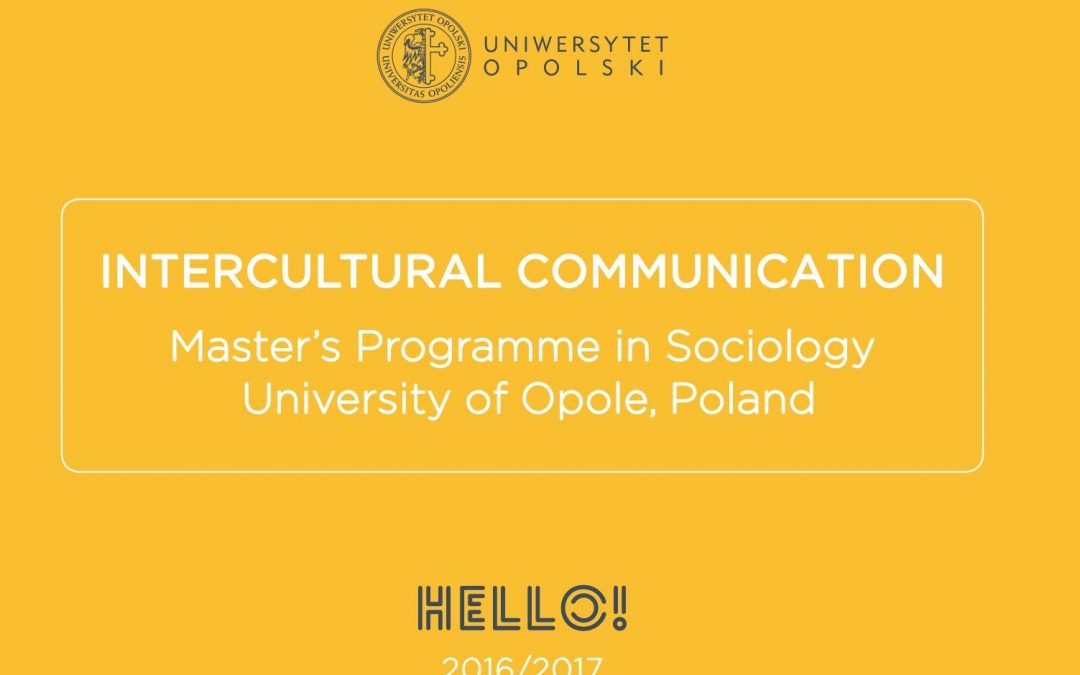
Intercultural Communication at the University of Opole – enrollment procedure and required documents
Registration and enrollment We are recruiting students for our Masters' Programme in Intercultural Communication. You can still enroll here. After having set up the account in our Online Registration System (rekrutacja.uni.opole.pl see the instructions:) you can...
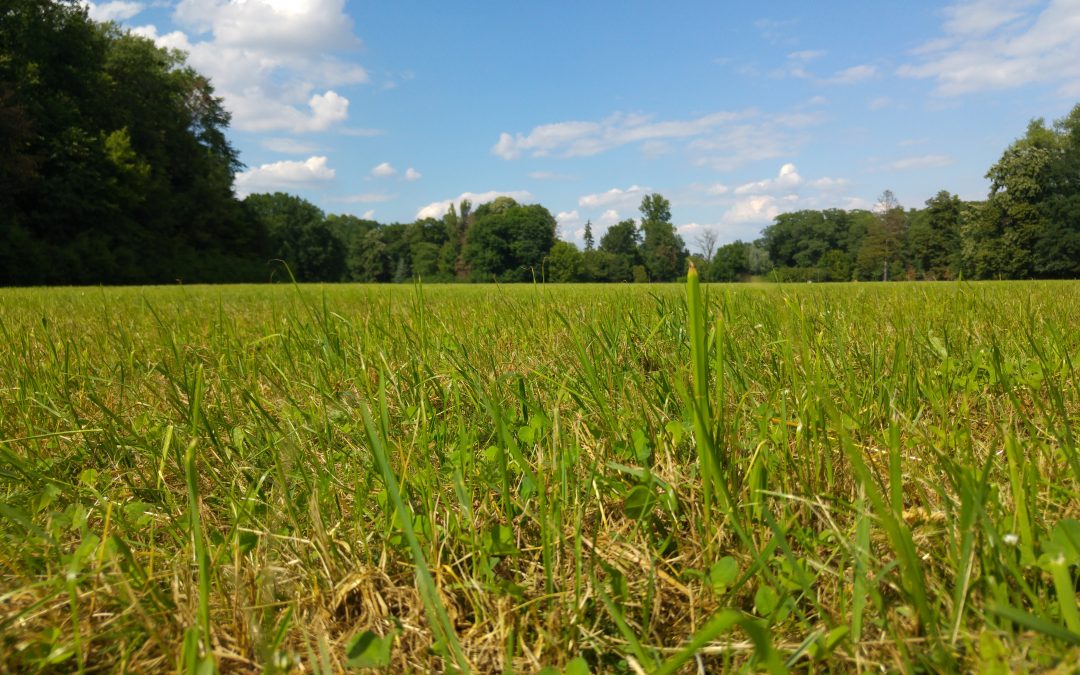
Academic calendar for 2016/2017
In order to plan your stay at the Uni of Opole and get the most of your time off in Poland, please, have a look at our academic calendar of the University of Opole for 2016/2017 as well as the national holidays and breaks. Adaptation Day: 30.09.2016 (Friday) - one...
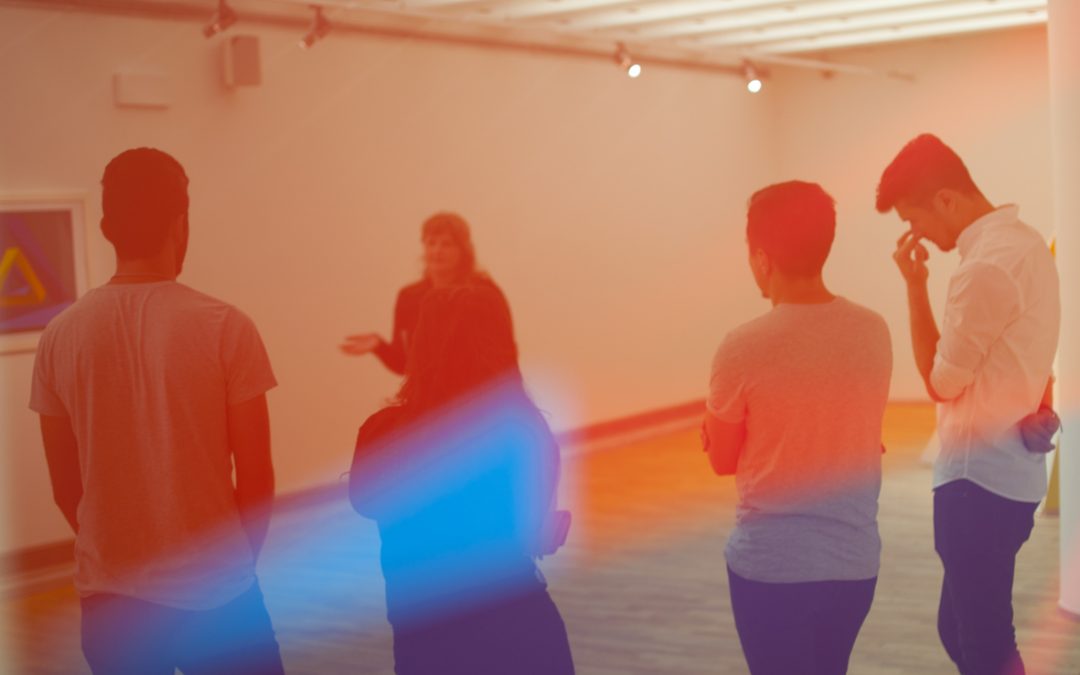
Visit to the Contemporary Art Gallery
We were invited to the Contemporary Art Gallery on Tuesday, 21. of June to see an exhibition and take part in a concert. Have a look at the photos below and read, what our students thought about it. We had our excursion at the Modern Art Gallery. We had a nice guide...
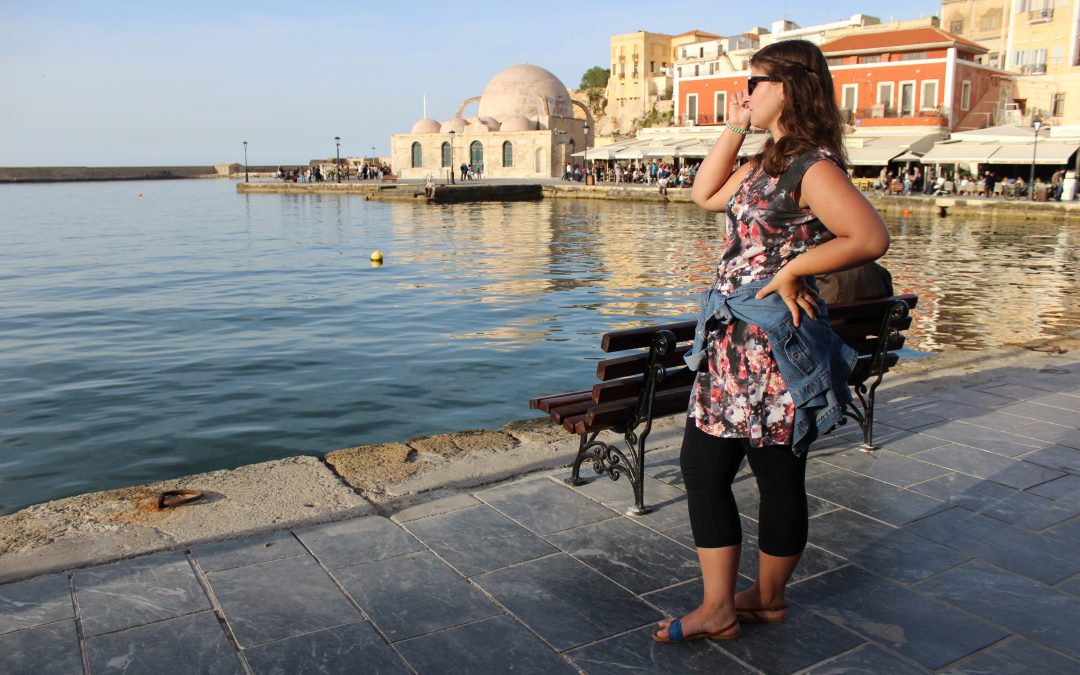
From Opole to Thessaloniki – Erasmus+ experience
We are Justyna and Patrycja, students of Applied Gender Studies at the Opole University and we are going to spend the following semester on Erasmus+ exchange at the Aristotle University of Thessaloniki in Greece. In order to be well-prepared and to be sure that...
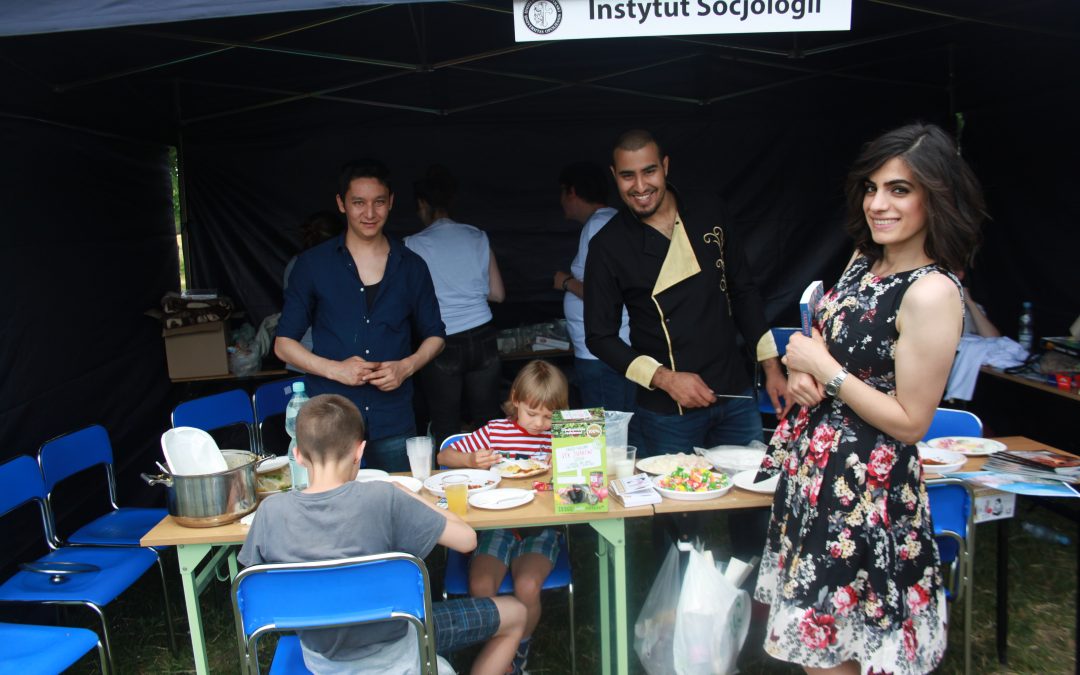
Opolski Festiwal Nauki / Opole Festival of Science
A Opole Festival of Science took place on 12th June on the grounds of the Opole University of Technology. It was multicultural and international at our stall. We (Hello! Uni Opole org.) organized attractions in the tent of Instytut Socjologii, Uniwersytet Opolski (the...
